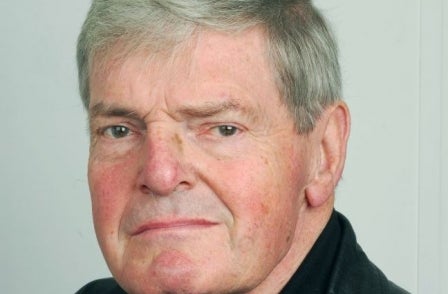
Former Guardian editor and media columnist Peter Preston has died aged 79.
Preston’s death on Saturday following his melanoma diagnosis ten years ago and was met with tributes from family and peers.
Peter Preston’s son, The Sunday Times executive editor Ben Preston, wrote: “My dad died last night, ten years after melanoma first struck, 20 months after it returned and barely four weeks since those clever doctors finally shrugged and said there was nothing else they could do for him.
“Dad died a good death, one that amplified the qualities we so admired while he lived. Resilience, bravery, wisdom — he was loved and loving until the end. The fulcrum of our family.”
The editor of the Guardian Katharine Viner tweeted: “Terrible news this morning that Peter Preston, the brilliant editor of the Guardian from 1975-1995 and a wonderful man, has died at the age of 79.”
Former News of the World editor Piers Morgan described Preston as a “brilliant editor and latterly, the fairest of media pundits”.
He continued: “Always enjoyed Peter’s company & respected his incisive opinions. A Fleet Street giant and lovely man who will be greatly missed by the newspaper industry.”
Preston edited the Guardian from 1975 to 1995.
The paper’s obituary details how he revolutionised the paper as editor, overseeing the iconic Peter Hillman redesign of 1988 and taking the paper to a record circulation of over 500,000.
He also oversaw the launch of ad-packed supplements on education and society.
Obit writer David McKie wrote: “No editor could have been braver in times of struggle. No editor in the paper’s history had displayed greater commitment and diligence. For all the changes that have inevitably ensued, he left an indelible mark on the newspaper he served for so long.”
Under his editorship, the Guardian also handed over documents to the Government in 1983, following a legal challenge, that revealed foreign office clerk Sarah Tisdall leaked details of missile movements to the paper.
Tisdall was subsequently jailed for four months as a result.
Preston’s final media column for the Observer was published on New Year’s Eve.
The column discussed how the press should deal with its negative public image.
He concluded: “We remember Watergate, the Pentagon Papers and similar triumphs. They burnish our business. But they are not, by any means, the whole of the business: a business that means treating readers in a jam like human beings, identifying distress, becoming a functioning part of society rather than commentators at its edges.
“In short, seeking to be worthy of trust in the hole where admiration ought to be.”
The Guardian said in a leader column: “Peter Preston, who died on Saturday, embodied some of the best qualities not just of this paper, but of journalism more widely.
“By hard work and personal example he showed how a newspaper could change and improve without losing touch with its roots. During his editorship of the Guardian, he introduced to a rather self-important paper a light touch that was not merely superficial.
“He loved his trade, and was a master of all aspects of newspaper editing, but he never supposed that the media were more important than their subjects. His position as an outsider, not a metropolitan and never a member of the gilded elite, made him respectful of power without being dazzled by it. He did not sneer.”
Peter Preston was one of the founding judges of the British Journalism Awards, the event launched by Press Gazette in 2012.
Press Gazette editor Dominic Ponsford said: “The British Journalism Awards judges are mostly completely independent of particular publishers. We made an exception with Peter Preston because, although still a columnist with The Observer, we knew he was a figure whose integrity and expertise would not be questioned by anyone in the industry.
“It was a huge boost to the event to have him involved in the early days up to the last awards in December. He took on the challenge of reading more than 100 articles in the foreign affairs category without complaint and his comments were always among the most erudite and perceptive.
“Whilst journalism has its fair share of sharks and chancers, like any industry, Peter Preston always struck me as one of the good guys. He was devoted to the craft of journalism and a passionate supporter of the industry which holds all others to account.”
“His comment about 2017 foreign affairs journalism winner Ramila Navai of Channel 4 News was typical: ‘Navai is brave (like everyone else this category) but she opened up a new road of understanding: cool, direct, inclusive, with a real sense of time and place.’”
John Mair, who edited Peter Preston’s contributions to a number of books about journalism, said: “Peter Preston was not just a great writer and journalist but a totally reliable one too.
“Peter’s contributions were a cornerstone of more than half of them over the last decade. He wrote always brilliantly, always eloquently always willingly.
“Peter did not really need an editor in advance or any subbing after. He was self-editing. Every word was a gem, carefully chosen, every idea original, all worthy reading. We could ask for no more.”
Email pged@pressgazette.co.uk to point out mistakes, provide story tips or send in a letter for publication on our "Letters Page" blog
